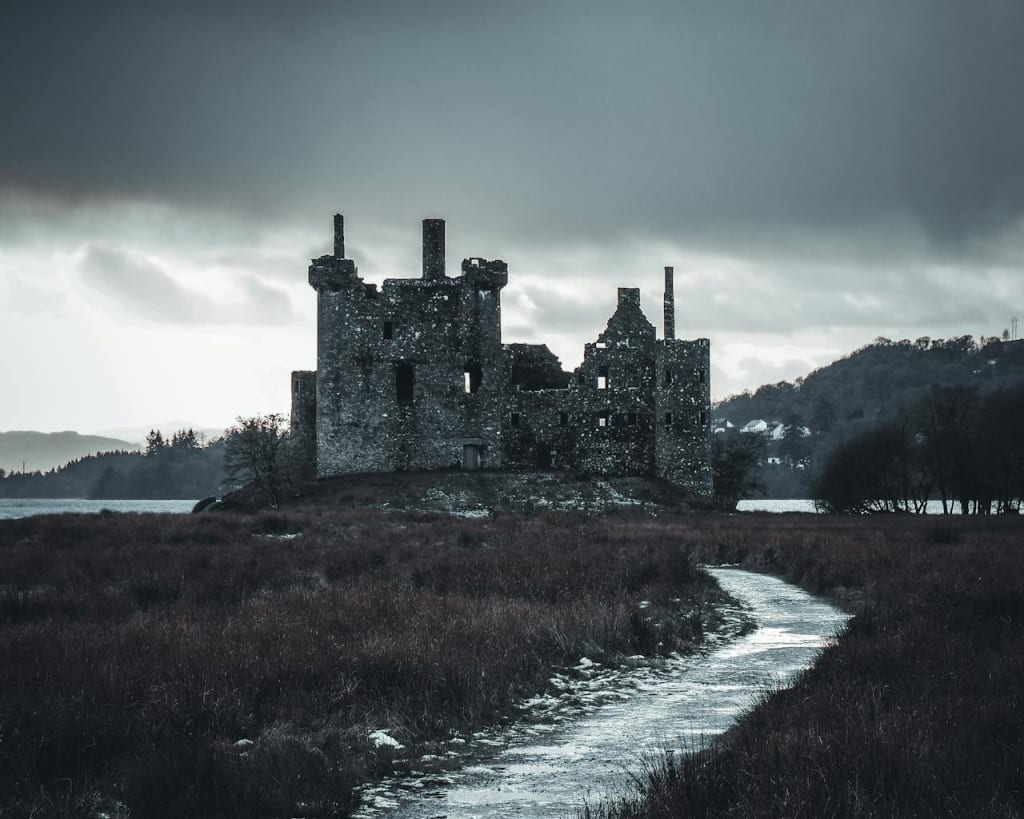In the quiet embrace of bygone days
Where memories linger like echoes in the halls of time

In the quiet corners of history, where the echoes of the past whisper their secrets, lies a world rich with tales of valor, intrigue, and discovery. It's a realm where knights jousted for honor, scholars sought wisdom in dusty tomes, and explorers charted uncharted seas. Join me as we journey back to those distant days, to a time when the world was both smaller and infinitely more mysterious.
Our story begins in the heart of the Middle Ages, a time of castles and cathedrals, when the Church held sway over the souls of men and kings battled for dominion over land and people. It was an era of both faith and fear, where superstition mingled with the promise of salvation, and the line between heaven and earth blurred.
In the year 1066, the Norman Conquest forever altered the course of English history. With the Battle of Hastings, William the Conqueror claimed the throne of England, ushering in a new era of Norman rule and forever changing the cultural landscape of the British Isles. But even as England bent beneath the yoke of its new overlords, a spirit of resilience and defiance burned bright in the hearts of its people.
Over the centuries that followed, the feudal system flourished, binding peasants to the land and nobles to their lords in a complex web of obligations and loyalties. Castles sprang up like mushrooms across the countryside, towering fortresses of stone and timber that served as both symbols of power and bastions of defense against marauding invaders.
But while the lords and ladies of the realm feasted in their great halls and plotted against their rivals, a new force was quietly gathering strength in the east. The Mongol Empire, under the leadership of Genghis Khan, swept across Asia like a tempest, leaving a trail of destruction and conquest in its wake. From the steppes of Mongolia to the shores of the Black Sea, the Mongols carved out an empire of unprecedented size and scope, stretching from the Pacific to the Mediterranean.
Yet even as Genghis Khan's descendants continued to expand the borders of their empire, a series of events was unfolding in the heart of Europe that would forever alter the course of history. In 1347, the Black Death arrived on the shores of Sicily, carried by fleas riding on the backs of rats aboard Genoese trading ships. From there, the plague spread like wildfire, leaving death and devastation in its wake as it swept across the continent.
The Black Death was a catastrophe of biblical proportions, wiping out an estimated one-third of Europe's population in the space of just a few short years. Entire villages were wiped out, fields lay fallow, and the streets of cities ran red with blood. It was a time of unimaginable suffering and despair, as people sought in vain for some explanation for the horrors that were unfolding around them.
In the midst of this chaos and despair, a new sense of urgency began to take hold in the hearts of men. The old certainties of feudalism and divine right were called into question, as people began to question the very foundations of their society. It was a time of upheaval and unrest, as the feudal order that had governed Europe for centuries began to crumble under the weight of its own contradictions.
But even as Europe teetered on the brink of collapse, a new spirit of exploration and discovery was beginning to stir in the hearts of men. In 1342, the Venetian explorer Marco Polo set out on his legendary journey to the court of Kublai Khan, ruler of the Mongol Empire. Over the course of his travels, Polo would journey through deserts and mountains, across vast plains and treacherous seas, documenting the wonders of the world in his famous book, "The Travels of Marco Polo."
Polo's travels would open up a new world of possibilities for Europe, igniting a thirst for knowledge and adventure that would eventually lead to the Age of Exploration. From the shores of Africa to the islands of the Caribbean, European explorers would venture forth in search of new lands and new riches, driven by a sense of curiosity and a desire for glory.
But even as Europe reached out to embrace the world beyond its shores, the old order was crumbling from within. The feudal system, which had once provided stability and security, was now unraveling under the pressure of economic and social change. Peasants revolted against their feudal overlords, demanding an end to serfdom and the right to govern themselves.
In the cities, a new middle class was beginning to emerge, made up of merchants and craftsmen who had grown wealthy from trade and commerce. These burghers wielded growing influence and power, challenging the authority of the nobility and demanding a greater say in the governance of their cities.
But even as Europe stood on the brink of a new age, the shadows of the past still loomed large. The Hundred Years' War raged on, a bitter conflict between England and France that would drag on for decades, leaving a trail of destruction and devastation in its wake.
Yet even in the darkest of times, there were glimmers of hope and resilience. The Renaissance, a cultural and intellectual movement that had its roots in the cities of Italy, was beginning to spread across Europe, bringing with it a renewed interest in art, literature, and science. It was a time of rebirth and renewal, as Europe emerged from the ashes of the past to embrace a new era of enlightenment and discovery.
And so, as we bid farewell to the year 1342, we find ourselves standing on the threshold of a new age. The old certainties of the past are crumbling away, swept aside by the winds of change that are sweeping across Europe and beyond. But even as we look to the future with hope and uncertainty, we must never forget the lessons of the past, for it is only by understanding where we have been that we can hope to chart a course for the future.
About the Creator
Enjoyed the story? Support the Creator.
Subscribe for free to receive all their stories in your feed. You could also pledge your support or give them a one-off tip, letting them know you appreciate their work.






Comments
There are no comments for this story
Be the first to respond and start the conversation.